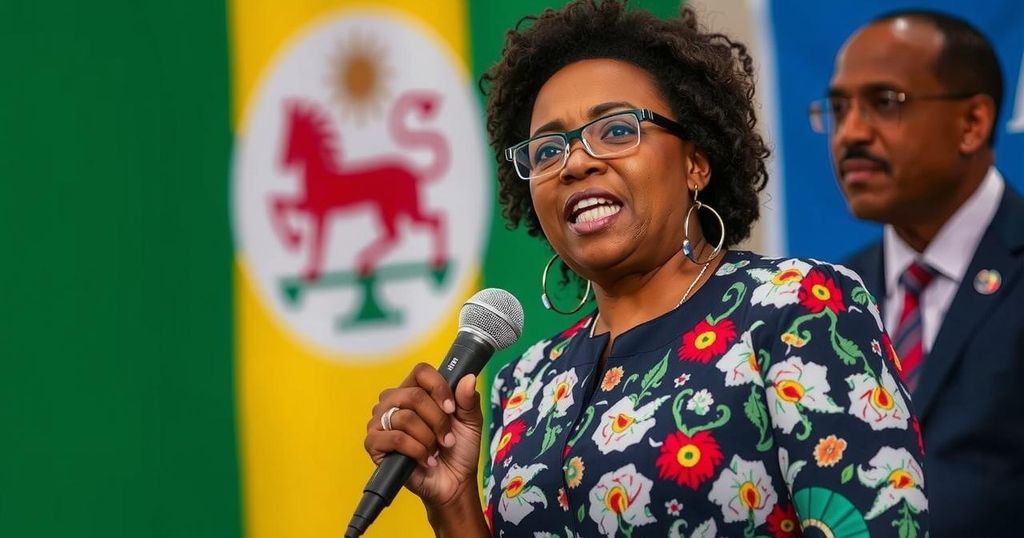Namibia’s Vice President Netumbo Nandi-Ndaitwah leads early results in a presidential election rife with technical issues, prompting opposition claim of irregularities. With approximately 56% of the counted votes, her historic candidacy is overshadowed by calls for legal challenges to the election process due to alleged unconstitutional procedures. Final results are pending amid heightened scrutiny of electoral integrity.
Namibia’s presidential election, held on November 27, 2024, is currently in progress, with early results indicating that Vice President Netumbo Nandi-Ndaitwah of the ruling South West Africa People’s Organization (SWAPO) is in the lead. The election has been marred by significant logistical challenges, including a shortage of ballot papers, which necessitated an extension of voting over three days. This has prompted allegations of irregularities from opposition groups, who argue that the extension was unconstitutional and undermined the democratic process.
Despite these issues, partial results show Nandi-Ndaitwah receiving about 56% of the counted votes, while her closest rival, Panduleni Itula from the Independent Patriots for Change party, has garnered approximately 27%. Nandi-Ndaitwah, if confirmed as the victor, would make history as Namibia’s first female leader. However, the SWAPO party, while historically significant as the liberator from apartheid South Africa, is currently facing discontent over high unemployment and economic difficulties that primarily affect the youth in Namibia.
The electoral opposition, represented by parties such as the Independent Patriots for Change, plans to challenge the validity of the election results in court, asserting that the integrity of the election has been jeopardized. Opposition leader McHenry Venaani emphasized, “It is about our country, it’s about our democratic credentials, it’s about the country that must work for everybody, the poor and the rich.”
The Electoral Commission of Namibia has rejected calls for reruns despite the controversies, reflecting a broader trend in the region, where disillusionment with long-standing ruling parties has led to significant political shifts. The upcoming final results are expected shortly, amidst an atmosphere of heightened scrutiny and challenge from multiple opposition factions.
Namibia has historically been recognized as a stable democracy in Southern Africa, with a legacy shaped by its transition from apartheid rule in 1990. The current electoral process, while initially reflecting that stability, has encountered substantial administrative failures and public dissatisfaction. The significance of this election extends beyond the individual candidates, highlighting broader frustrations with governance, economic instability, and issues surrounding integrity in electoral processes. As the nation grapples with these concerns, it stands at a pivotal moment that could redefine its political landscape.
In summary, the current presidential election in Namibia is proceeding under a cloud of allegations and logistical complications that threaten the credibility of its results. Vice President Netumbo Nandi-Ndaitwah leads in the early counts, but opposition parties are poised to contest the election’s validity, prioritizing the integrity of democratic practices. The unfolding situation underscores a critical juncture for Namibia as it navigates the complexities of governance and public expectation amid its historical narrative of stability.
Original Source: apnews.com






